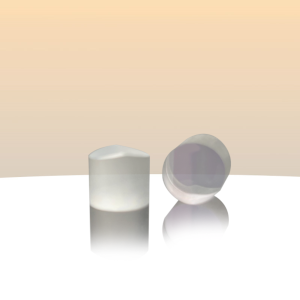Equilateral prism / Dispersive prism
Equilateral prisms are also called Dispersive prism. After the light of different wavelengths passes through the equilateral prisms, they will be dispersed in the order of the length of the wavelength, so the equilateral prisms can be used for spectral analysis.
Equilateral prism / Dispersive prismDescription
Equilateral dispersive prisms disperse a beam of light into different colors and are used in spectroscopic experiments and instruments. When a beam of light is obliquely incident on the first surface, since the refractive index of the glass is related to the wavelength, the light of different colors is refracted by different angles, so that a spectrum appears on the other side. When the apex angle is 60°, maximum dispersion and minimum reflection loss can be achieved. The higher the dispersive power or the smaller the Abbe number of the glass, the greater the angular dispersion produced.

| Specifications | |
| Material | N-BK7, H-K 9L, Fused silica, or Custom |
| Dimension | 3mm – 200mm |
| Dimension tolerance | ±0.05mm to ±0.1mm |
| Clear aperture | >85% – 90% of dimension |
| Angle tolerance | 5 arc sec. to 3 arc min. |
| Surface quality | 60/40, 40/20, 20/10, 10/5 scratch/dig |
| Surface accuracy | λ/10 to λ (@632.8nm) |
| Transmitted Wavefront Error (TWE) | λ/10 to λ |
| Bevel | 0.1mm to 0.25mm |
| Coating | Anti-reflection (AR) Coating, Metal reflection coating, Dielectric coating. |





